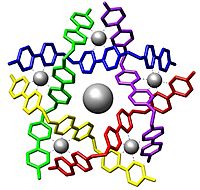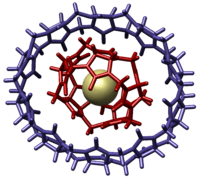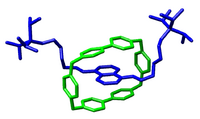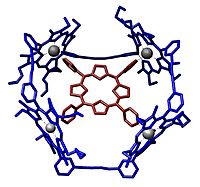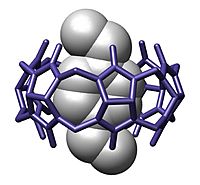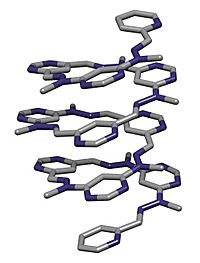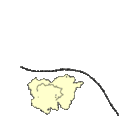Supramolecular chemistry facts for kids
Supramolecular chemistry is area of chemistry that studies the relationship and linking molecules into bigger systems. It focuses on the chemical systems made up of a discrete number of assembled molecular subunits or components. The study of non-covalent interactions is crucial to understanding many biological processes from cell structure to vision that rely on these forces for structure and function. Biological systems are often the inspiration for supramolecular research.
Related pages
- 2D and 3D Models of Dodecahedrane and Cuneane Assemlies [1]
Images for kids
-
[ribosome]] is a biological machine that utilizes protein dynamics on nanoscales
See also
 In Spanish: Química supramolecular para niños
In Spanish: Química supramolecular para niños

All content from Kiddle encyclopedia articles (including the article images and facts) can be freely used under Attribution-ShareAlike license, unless stated otherwise. Cite this article:
Supramolecular chemistry Facts for Kids. Kiddle Encyclopedia.

